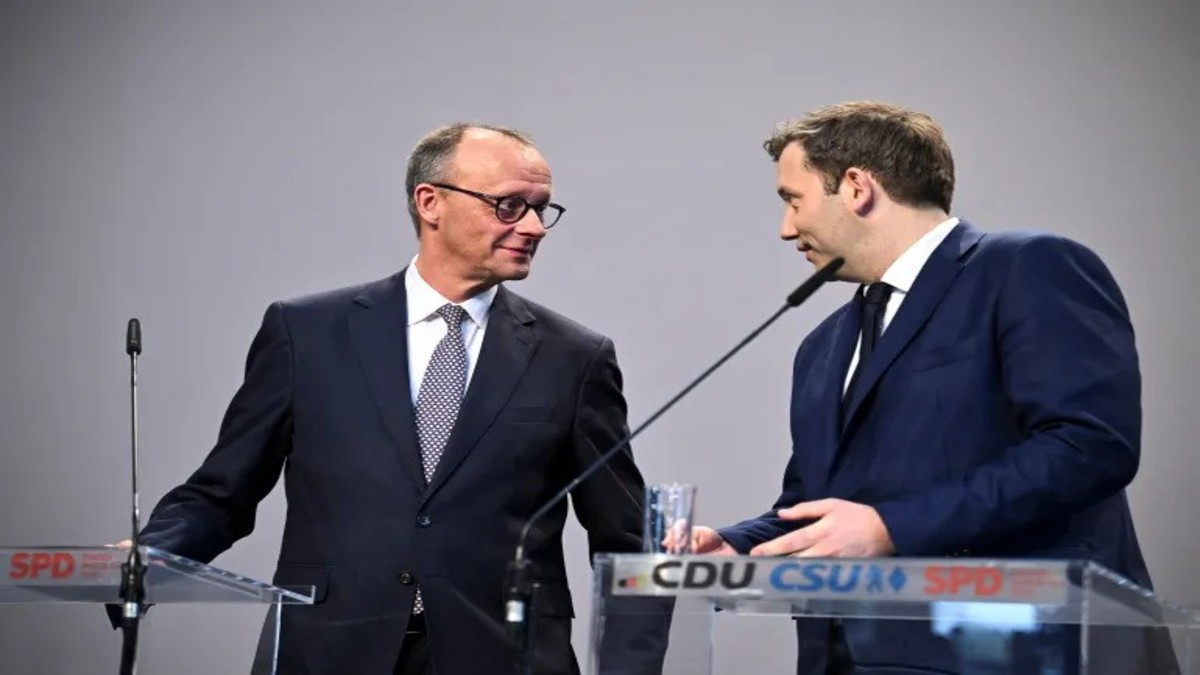Germany is on the cusp of inaugurating a new chancellor, bringing to a close a rather turbulent political chapter that began nearly six months ago with the collapse of Olaf Scholz’s government.
The collapse was triggered by Scholz’s contentious decision to dismiss Christian Lindner, the fiscally conservative finance minister from the Free Democratic Party (FDP), after months of disagreements over Germany’s budget planning.
Now, conservative leader Friedrich Merz is just days away from being sworn in as Germany’s next chancellor, following weeks of intense coalition negotiations.
The finance minister for his government has also been decided. The position has become crucial and not just because the previous government had collapsed due to disagreements on finances.
The new administration relies heavily on a €500 billion fund to drive its economic recovery plan. The Finance Ministry is going to be in-charge of it.
So, who is this new finance minister and what lies ahead for him?
Merz’s win and tough coalition talks
The February snap election, called after Scholz’s Social Democrat-led coalition fell apart in November 2024, resulted in Merz’s centre-right Christian Democrats (CDU) emerging on top.
Since it fell short of an outright majority, the CDU was forced to court coalition partners. The SPD, despite its losses, became the surprising linchpin in the negotiations. After weeks of backroom talks, the two parties struck a deal that cleared the way for Merz to form a government— with significant compromises on both sides.
That change has thrust the finance ministry into the spotlight—and into the hands of SPD co-leader Lars Klingbeil.
Klingbeil, 47, will become both finance minister and vice-chancellor in the new government. A political scientist by training with no background in economics, he is seen as a shrewd operator who led the SPD’s coalition negotiations. He is expected to rely heavily on a circle of economic advisers as he assumes responsibility for managing the massive spending programme and drafting Germany’s next two federal budgets, Financial Times reported.
Impact Shorts
More ShortsKlingbeil replaces Jörg Kukies, a former Goldman Sachs banker who served as finance minister under Scholz after Lindner was fired.
Historic budget, historic stakes for Klingbeil
Among the most critical outcomes of the coalition agreement is the creation of a €500 billion fund to overhaul Germany’s crumbling infrastructure and modernise its armed forces, a historic shift in the country’s fiscal policy. To do so, the coalition agreed to ease Germany’s long-standing “debt brake” restrictions, which cap government borrowing.
The €500 billion fund is at the heart of the new administration’s economic recovery plan. Of that amount, €300 billion is earmarked for federal-level investment in infrastructure and public services, while the remaining €200 billion will support regional initiatives and military upgrades.
Klingbeil will be responsible for shepherding the fund’s rollout, having to steer through a deeply polarised political landscape while reassuring both domestic and international markets that the fiscal discipline of Europe’s second-largest economy remains intact.
It looks very much like a high-risk, high-reward opportunity that could completely change how the German public sees him and his party.
Chancellor-designate Merz and Klingbeil are expected to be sworn in next week after the formal signing of the coalition pact.
Shreya Mundhra is a journalist with Firstost specialising in global economy, foreign affairs, defence and conflict coverage. She can be reached via email at shreya.mundhra@nw18.com
)